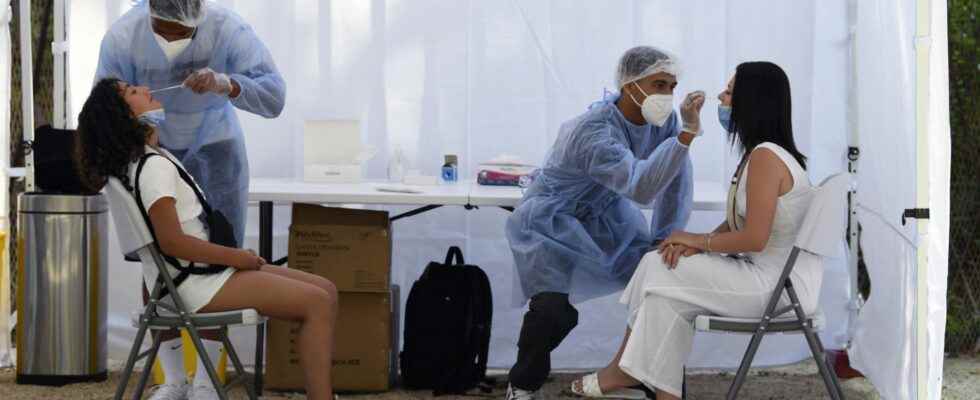The Committee for Monitoring and Anticipating Health Risks (Covars) evokes in its first opinion, issued on Monday, a current epidemic wave of Covid-19 of “moderate intensity”, while remaining cautious for the future in the face of potential new variants. “A pandemic rebound in France and in Europe affects the elderly and remains for the moment of moderate intensity but with a dynamic to be monitored”, according to the successor of the Scientific Council, chaired by the immunologist Brigitte Autran. In its sights in particular: the rapid growth of the Omicron BQ.1.1 sub-variant, detected in France in mid-September. It now represents 15% of the viruses detected in mainland France, and almost half in Ile-de-France.
However “the level of immune escape of BQ.1.1 is uncertain”, warns the Covars. Be that as it may, the epidemic restart observed in France, as in part of Europe, “does not seem to be due to the appearance of a new variant stricto-sensu”, he believes, but rather to a set of other factors (decline in collective immunity, climatic conditions favorable to the spread of the virus, etc.)
“Very close to the epidemic peak”
According to the watchdog, “the analysis of the growth rates of the various epidemiological indicators suggests that we could be very close to the epidemic peak”. But “these encouraging signals must be tempered” due to “rapid growth of the BQ.1.1 variant on national territory”. A descendant of “BA.5”, this “sub-subvariant” has several mutations that could promote immune escape.
“It remains a descendant of Omicron”, which marks a difference “less clear than when Omicron had replaced Delta”, explained virologist Bruno Lina, one of the 19 members of Covars during a press briefing. If BQ.1.1 “presents a real advantage (if it is more contagious: editor’s note), we could observe a rebound of the wave but it will only be visible in one or two weeks”, he continued.
Hospital capacities “significantly reduced”
In the meantime, the epidemic wave that appeared in mid-September 2022 “has less direct hospital impact than previous waves”. But even before the start of winter “hospital capacities remain significantly reduced”, warns the Covars. Other winter infectious diseases such as influenza, bronchiolitis or gastroenteritis could also affect the health system. The Covars therefore recommends continuing the prevention and vaccination measures put in place to deal with Covid.
Several levers must thus be “activated”: “vaccinate, promote the wearing of masks, control the quality of the air”, he advocates. “We are no longer for the generalization of the mask but for responsible wearing; we must also accelerate the vaccination campaign with the 3rd reminder for the most fragile”, underlined Brigitte Autran. The council is also attentive to the acceptability of the measures and the mental health of the French. “It keeps deteriorating,” warned demographer Annabel Desgrees du Lou, without it being possible to attribute this malaise to Covid alone. According to a recent survey, 41% of 18-24 year olds show particular signs of anxiety.
